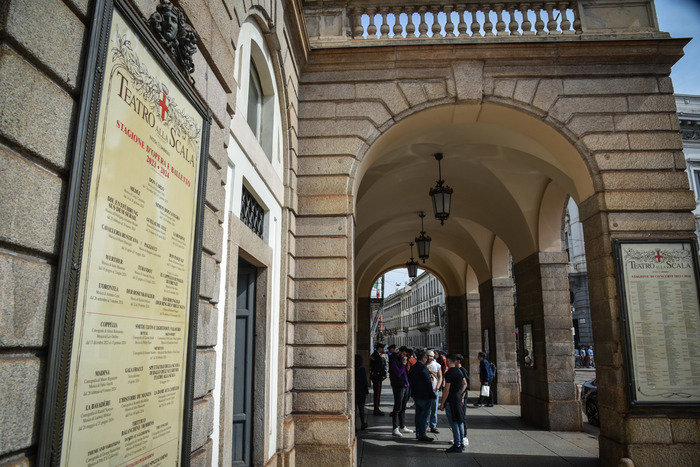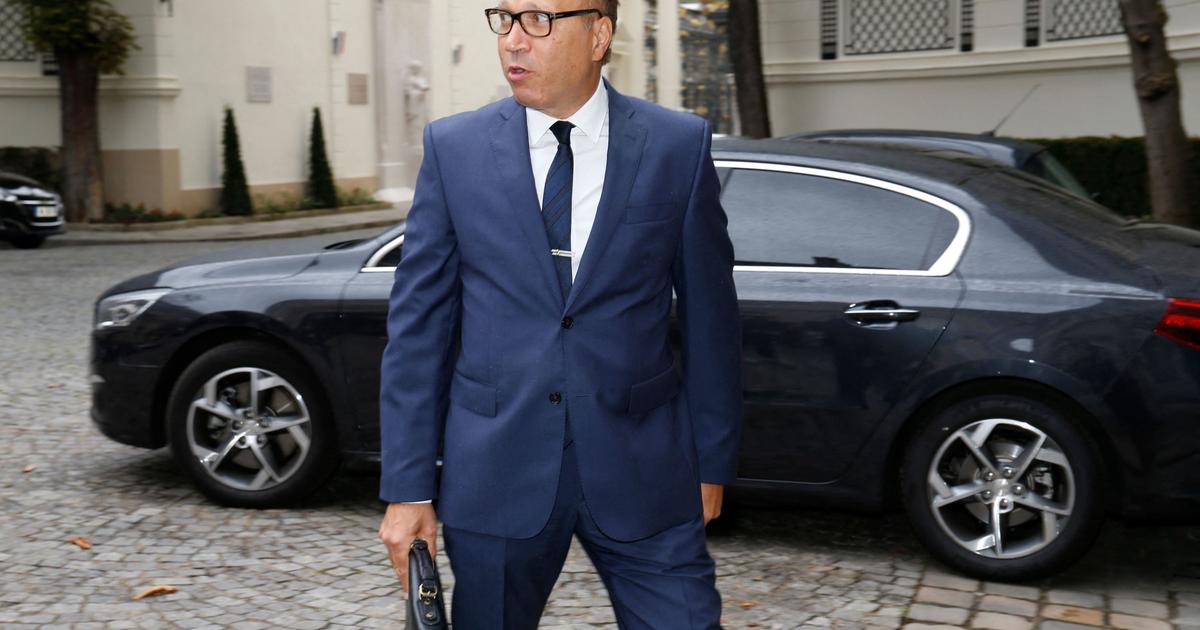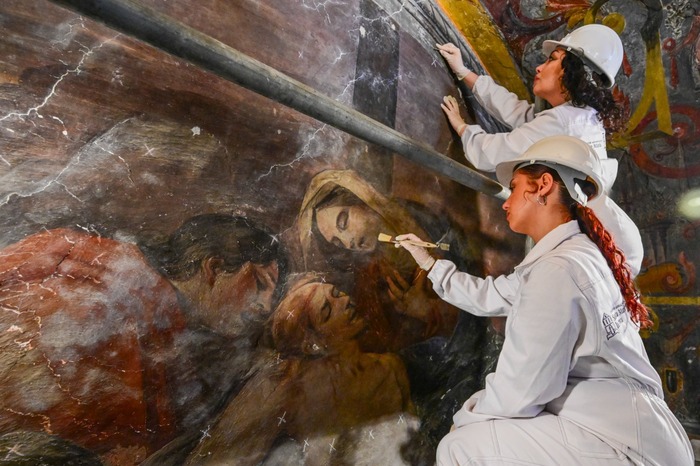Prussian Cultural Heritage Foundation before fundamental reform
Created: 05/12/2022, 18:06
Rainer Robra (lr, CDU), Minister of Culture of Saxony-Anhalt, Claudia Roth (Bündnis 90/Die Grünen), Minister of State for Culture, Hermann Parzinger, President of the Prussian Cultural Heritage Foundation, and Dagmar Korbacher, Director of the Print Room of the State Museums in Berlin, at the presentation of the cornerstones for the reform of the Prussian Cultural Heritage Foundation.
© Monika Skolimowska/dpa
Germany's internationally most important cultural institution is facing a fundamental change.
The well-known museums should be able to decide more for themselves.
Funding for this is still unclear.
Berlin - The planned reform of the Prussian Cultural Heritage Foundation should visibly strengthen the museums and institutions of the association.
The Board of Trustees of Germany's most important international cultural institution unanimously approved the fundamental changes.
Minister of State for Culture Claudia Roth (Greens) spoke in Berlin of a "step towards more autonomy and independence and thus better ability to act".
The foundation, which is supported by the federal and state governments, is considered too sluggish and its museums not up to the level of their international potential.
The foundation with around 2000 employees includes the State Museums in Berlin, whose 15 collections with 4.7 million objects are presented at 19 locations.
According to an analysis by the Science Council, a science-political advisory body, the construction results in unclear decision-making processes.
More personal responsibility
The greater autonomy also brings more personal responsibility, said Roth.
With the reform, the facilities should become significantly more attractive for a broad audience.
Foundation President Hermann Parzinger spoke of "important cornerstones" for the future".
The federal and state governments have made the national importance of the foundation clear.
The question remains open as to how, in addition to the structure, new content of future autonomy will be financed.
Proposals for this are to be submitted by the summer of 2023.
For the federal states, Saxony-Anhalt's Minister of Culture Rainer Robra (CDU) said that the reform process could essentially be financed by optimizing efficiency.
Parzinger said that even in difficult times there was a political awareness that there would be effective growth.
“That is essential for us.” Roth said that more money is not always and necessarily needed.
The institutions should now look at it "and then we'll start the negotiations".
This is how the financing is arranged
The country shares have been capped since 1996.
All countries together contribute around 15 percent of the budget, about 8 percent of which comes from Berlin as the home country.
The federal government pays around 86 percent.
Without the federal states, the federal government would have to raise around 50 million euros according to the most recently published calculations.
For the museums, Dagmar Korbacher, director of the Kupferstichkabinett, spoke of an "opening of scope for action".
It is about strengthening the network of a collegial community.
"Less bureaucracy means more museums."
also read
One of us: Wagner's "Lohengrin" at the Bavarian State Opera
Weird, grumpy and lovable: Karl Merkatz died
In the future, the foundation will be managed by a collegiate body.
The President, Vice President and President of the State Library should be present as permanent members.
Two leaders from the State Museums and one representative from the other institutions are to be elected for four years at a time.
The future board of directors should only deal with overarching issues.
Cooperation with the Humboldt Forum
In a second process, the foundation's cooperation with the Humboldt Forum is to be restructured.
The culture and exhibition center behind the reconstructed palace facade is designed by the Prussian Foundation with two of its museums, the State of Berlin, the Humboldt University and the Humboldt Forum Foundation.
As a possibility for a new structure, the forum could be linked to the Prussian Foundation.
The director general of the Humboldt Forum would then also be officially responsible for the two museums in the building and the seventh member of the board of the Prussian Foundation.
dpa









